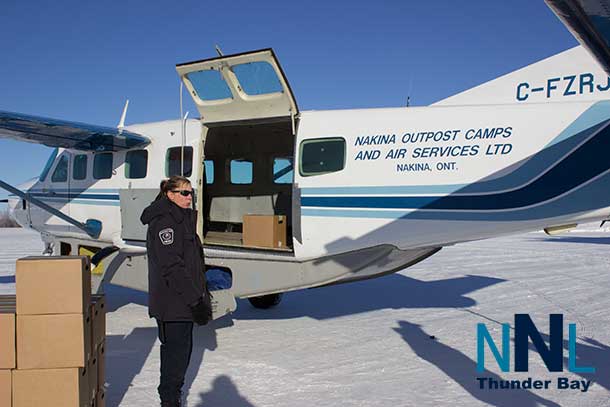
NESKANTAGA – Indigenous – It is Canada’s longest standing boil water advisory. The community of Neskantaga First Nation (NFN) marked today as the 10,000th consecutive day of being under a Boil Water Advisory (BWA).
Causing 27 years of anxiety, frustration, and hardship in the community and a major challenge for the federal government to resolve—the current BWA was first declared on February 1, 1995. It has caused the community to fully evacuate on two occasions (for 1-3 months at a time) in 2019 and 2020.
“This is not something we are proud of by any means but it is real and happening today in our community,” said Chief Wayne Moonias. “Acknowledging 10,000 days in BWA is impactful in so many ways—there has been so much loss of dignity and lack of trust over this,” he added.
Over the past three years, NFN has been working with Canada to address the root causes to the longest BWA in the country by embarking on some of the following projects:
- Commissioning an independent report on: (1) the design suitability of the upgraded water treatment plant (WTP), distribution and wastewater system and, (2) the best options for a new WTP and system
- Commissioning a study to assess NFN’s current water systems and identify options for new systems that are suitable for a 20-Year Community Growth Plan
- Developing a “What Actually Happened Report?” – this report is an investigation into the aging WTP plant upgrade project and why it went five times over budget and delivered years late
- Entered into a 5-Year operations, maintenance and training contract with the Ontario Clean Water Agency (OCWA) that includes training for NFN members
- Developing a long-term “Trust in the Taps Navigators” project which is part of a community wellness strategy to help people address trauma caused by the long-term water crisis
- A project to clean up used water bottle containers in the community
Chief Moonias concluded by saying, “Remote water systems are complicated and sensitive. Everyday, we continue to be on the brink of a complete shutdown. We are hoping that, what we do to address the root causes, will benefit our community in the near future and for generations to come.”





